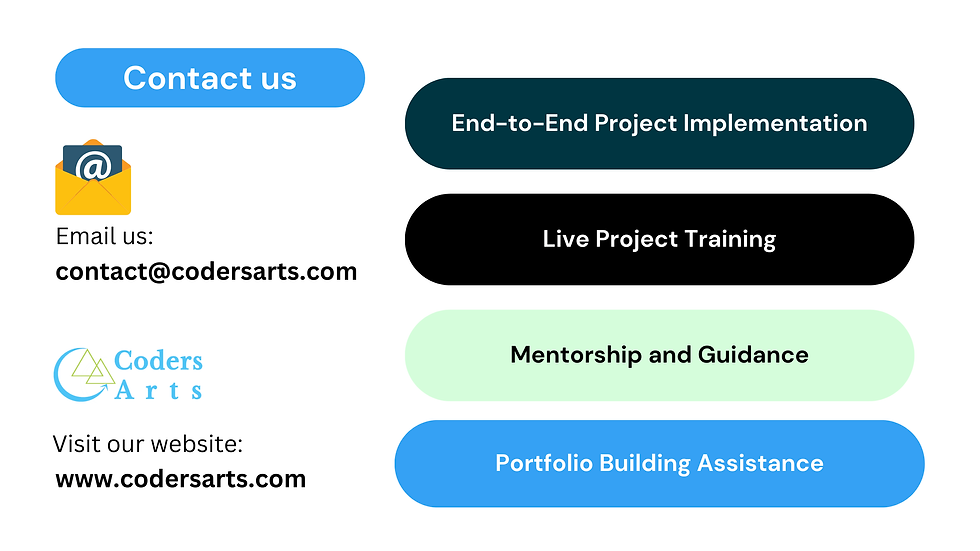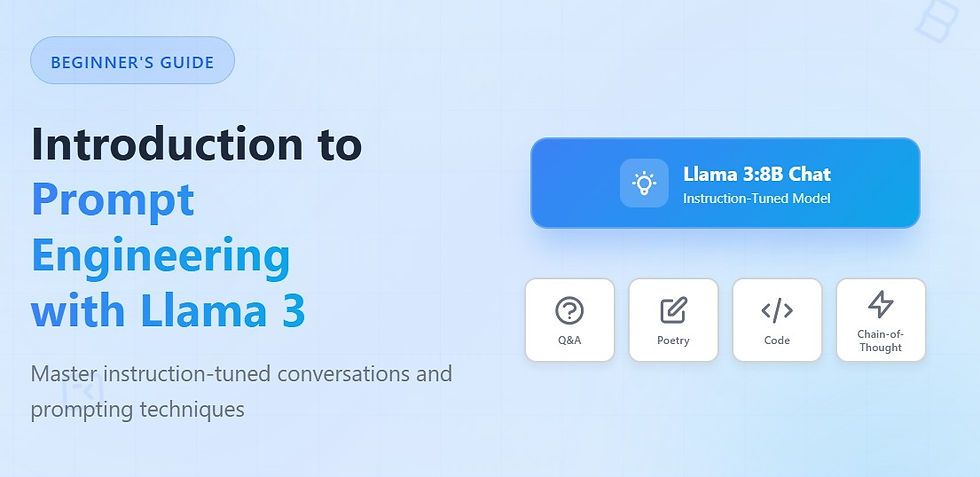Should MERN Stack Developers Learn MCP? A Complete Guide
- Codersarts

- Jul 31, 2025
- 5 min read
The tech landscape is constantly evolving, and developers are always faced with the question: "What should I learn next?" For MERN stack developers, a new consideration has emerged with the introduction of Model Context Protocol (MCP). But is it worth your time and effort to dive into this new technology?

In this blog post, we’ll break it down in simple terms — what MCP is, where it fits in modern AI applications, and whether a MERN developer should spend time learning it.
What is MCP (Model Context Protocol)?
Model Context Protocol (MCP) is a new standard (or interface) used in AI applications — especially those that involve Large Language Models (LLMs) and AI agents — to manage the flow of context, state, and tool usage for AI models.
MCP acts as a coordinator or orchestration layer that:
Maintains the context of conversations
Manages memory for agents
Handles the tools the model can use (APIs, code execution, retrieval, etc.)
Facilitates structured communication between models and systems
Think of MCP as the backend brain that enables smarter, stateful interactions for LLMs beyond one-off prompts.
Additionally, Model Context Protocol is an open standard developed by Anthropic that enables seamless communication between AI language models and external data sources and tools. Think of it as a bridge that allows AI assistants to securely connect with your applications, databases, and services in real-time.
MCP operates on a client-server architecture where:
MCP Clients (like Claude Desktop) can connect to multiple servers
MCP Servers expose specific resources, tools, and prompts
The protocol ensures secure, standardized communication between these components
The MERN Stack Developer's Perspective
If you're a MERN developer, you build full-stack apps using:
MongoDB – database
Express.js – server framework
React.js – frontend library
Node.js – runtime environment
Traditionally, your apps involve REST APIs, user dashboards, form submissions, CRUD operations, and maybe some basic third-party API integrations. Your applications are self-contained systems that handle user interactions, process data, and deliver responses through conventional web interfaces.
So where does MCP come into the picture?
Where MCP Meets MERN
In modern AI-powered apps — for example:
AI chatbots with memory
Multi-agent collaboration platforms
Knowledge assistants
Voice AI apps
Task automation systems
MERN alone is not enough.
You need a bridge between your front-end React interface and the LLM backend — and this is where MCP plays a critical role.
✅ Use Case Example:
Imagine building a SaaS dashboard where a user can:
Upload a PDF
Ask questions about it
Get answers powered by an LLM
Have the system remember previous questions
Trigger actions (e.g., send email, summarize docs, call APIs)
Behind the scenes:
React (UI) → sends prompt
Node/Express (API) → routes request
MCP Server → builds context, loads tools, calls LLM
MongoDB → stores history, context, actions
MCP is the “AI brain” that coordinates all these steps intelligently.
Why a MERN Developer Should Learn MCP
1. Future-Proofing Your Skills
AI apps are no longer "cool side projects" — they are core features in enterprise tools, edtech platforms, productivity apps, and internal business systems.
Learning MCP gives you the language of modern AI application architecture.
2. Expanding Your Project Capabilities
With MCP knowledge, you can:
Build smarter assistants
Integrate memory-enabled LLMs
Use tools like LangChain, CrewAI, AutoGen, or LangGraph effectively
Position yourself as a Full-Stack + AI Developer
3. Higher-Paying Opportunities
AI + MERN developers are in high demand. Companies are looking for engineers who can:
Build UI with React
Build API and data layer with Node.js and MongoDB
Orchestrate LLMs using protocols like MCP
Practical Applications for MERN + MCP
Database Integration
Imagine an AI assistant that can query your MongoDB database intelligently:
// MCP Server exposing database operations
const server = new Server({
name: "mern-database-server",
version: "1.0.0"
});
server.tool("query-users", {
description: "Query user data from MongoDB",
parameters: {
filter: { type: "object" },
limit: { type: "number" }
}
}, async (params) => {
const users = await User.find(params.filter).limit(params.limit);
return { users };
});
E-commerce Integration
For an e-commerce MERN application, MCP could enable AI to:
Check inventory levels
Process orders
Analyze customer data
Generate reports
Content Management
Your React-based CMS could expose content through MCP, allowing AI to:
Create and edit articles
Manage media assets
Optimize SEO content
Generate analytics reports
Learning Path for MERN Developers
Phase 1: Understanding the Basics
Study MCP fundamentals - Learn about the protocol architecture and communication patterns
Explore existing MCP servers - Examine open-source implementations to understand best practices
Set up development environment - Install necessary tools and SDKs
Phase 2: Building Your First MCP Server
Create a simple Node.js MCP server that exposes basic functionality from your MERN app
Integrate with MongoDB - Expose database operations through MCP
Test with AI clients - Connect your server to Claude Desktop or other MCP clients
Phase 3: Advanced Integration
Build complex workflows - Create servers that handle multi-step processes
Implement security measures - Ensure your MCP servers follow security best practices
Optimize performance - Handle concurrent requests and manage resources efficiently
Challenges and Considerations
Learning Curve
While MCP builds on familiar concepts for MERN developers, there's still a learning curve involved in understanding AI-centric design patterns and protocols.
Market Adoption
MCP is relatively new, and its widespread adoption in the industry is still evolving. However, early adoption often leads to greater opportunities.
Additional Complexity
Adding MCP to your technology stack introduces another layer of complexity to your applications, which requires careful consideration of architecture and maintenance.
When Should You Learn MCP?
Learn MCP if you:
Work with data-heavy applications that could benefit from AI analysis
Want to future-proof your skill set in the AI era
Are interested in building AI-powered tools and integrations
Have solid MERN fundamentals and are looking for the next challenge
Consider waiting if you:
Are still mastering core MERN concepts
Work primarily on simple, static websites
Have limited time for learning new technologies
Work in environments where AI integration isn't a priority
The Verdict
For MERN stack developers, learning MCP isn't just about adding another acronym to your resume—it's about positioning yourself for the future of web development. As AI becomes increasingly integrated into web applications, understanding how to build AI-compatible systems will become a valuable skill.
The investment in learning MCP is likely to pay dividends as the technology matures and becomes more widely adopted. Your existing MERN skills provide an excellent foundation for understanding and implementing MCP solutions.
Start small, experiment with simple integrations, and gradually build more complex AI-powered features into your applications. The combination of MERN stack expertise and MCP knowledge could make you an invaluable developer in the AI-driven future of web development.
🧠 Final Thoughts: Do You Need MCP?
Not always. But if you're serious about building AI-integrated web applications, then YES — you should absolutely learn MCP.
The web of tomorrow is not just interactive — it's intelligent.
And MERN + MCP is a powerful combination to build that future.
Getting Started Today
Ready to dive in? Here are your next steps:
Explore the official MCP documentation and examples
Set up a simple Node.js MCP server using your existing MERN knowledge
Connect it to a small MongoDB dataset and test with AI clients
Join the MCP community to stay updated on best practices and new developments
The future of web development is intelligent, connected, and AI-powered. As a MERN developer, you're already building the foundation—MCP could be the bridge to the next level.
🚀 Want Help Getting Started?
At Codersarts, we help developers and businesses implement LLM apps, AI agents, and MERN-based AI dashboards.
👉 Reach out if you'd like:
1:1 training on MCP & AI app building
Help integrating MCP in your existing MERN stack
Custom AI SaaS development




Comments